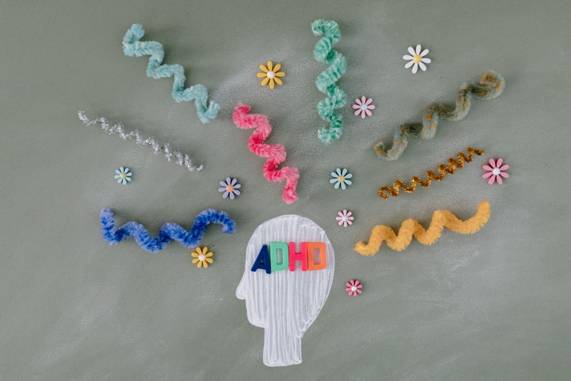Do You Have High-Functioning ADHD? | Signs, Causes, And Coping Tips

ADHD or Attention Deficit Hyperactivity Disorder is a neurological disorder, commonly diagnosed in toddlers, but isn’t just about the kids bouncing off the walls. It’s more complex than just kids being their hyperactive selves. ADHD can manifest itself in various ways and in several traits that can greatly impair daily functioning.
ADHD symptoms can include memory problems, poor focus on tasks, hyperactivity, impulsivity, and more. However, adding ADHD symptoms into one term and under one label may not be completely true.
ADHD is in itself a captivating disorder, but what’s even more complex than standard symptoms and manifestation of ADHD is high-functioning ADHD. It’s the hidden aspect of the ADHD spectrum which has its own complexities and challenges. So, let’s take a look at what is high-functioning ADHD, how it looks, and how to live with it.
What’s High-Functioning ADHD?

High-functioning ADHD is a subtype of ADHD where the symptoms are less obvious on the surface. It’s ADHD’s less discovered and less talked about cousin. If you have high-functioning ADHD, then you may not fit into the stereotypical image of the hyperactive, inattentive, and impulsive adult.
If you have high-functioning ADHD, your symptoms may not significantly impact your life. You might experience severe ADHD symptoms, but you might have also found a way to work around them and carry on with your daily functioning. You might notice that your symptoms are mild and you can function without much interruption. Your symptoms of ADHD might affect your tasks in some aspects of your life, but in other aspects, they are highly manageable.
High-Functioning ADHD Symptoms To Know
Coming to the telltale signs of high-functioning ADHD, I can only say that the symptoms can be sneaky. You may struggle with things like staying organized or keeping your space clutter-free, paying attention to tasks at hand, and even completing your tasks. You might even seem to be lost in daydreaming or losing your stuff now and then, and not because you’re lazy, just that your brain works differently from others.
Common symptoms to look out for if you have high-functioning ADHD can include;
- Being impulsive
- Inattention
- Being hyperactive
- Excessive rambling
- Feeling restless
- Being impatient
- Forgetting things
- Getting easily distracted
- Poor organization
- Taking unnecessary risks
When we talk about the causes, ADHD can become a puzzle with several missing pieces. It is known that genetics play a great role in causing or developing ADHD in children, but other factors can be at play too, such as brain chemistry, environmental impact, or a mix of it all.
Neuroimaging has shown differences in the brain structures of people with ADHD. The prefrontal cortex, responsible for executive functions, shows differences in those with ADHD.
Researchers have also found that prenatal exposure to smoking or other substances during pregnancy can contribute to the development of ADHD in the fetus.
The Link Between High-Functioning ADHD and High Achievers
Here’s where it gets fascinating: the connection between High-Functioning ADHD and high achievers. Believe it or not, some of the most successful people have ADHD. How so? It could be because their brains are wired to think differently than others. This out-of-the-box thinking has led to incredible inventions and discoveries.
Speaking of incredible inventions and geniuses, researchers have also found a link between high-functioning ADHD and high intelligence. If you’re living with ADHD then you might have a higher-than-average IQ or intelligence quotient. In a 2017 study, it was found that people with high IQ were more likely to compensate for ADHD challenges in executive functioning such as decision-making, problem-solving, mental flexibility, and self-control.
Isn’t it amazing how ADHD can be linked to so many amazing functions even when it is looked at as a disorder? I believe that when you embrace ADHD as it is – complexities and all – it can become your personal superpower!
Even then, if you find yourself in a fix when it comes to ADHD-related challenges, I have some coping tips for you. You can use these ways to live with and cope with high-functioning ADHD.
Coping With High-Functioning ADHD
There is no one-stop answer for how to treat high-functioning ADHD, – everyone’s experiences with ADHD are unique, after all – but there are some coping strategies that can help you live with ADHD without the disorder interrupting your life much. Here are some tips to help you out;
-
Professional Treatment
You can approach treating ADHD with a professional. There are professional treatment options to treat high-functioning ADHD. In most cases, the treatment approaches include therapies such as behavioral therapy, medication, and self-care.
A professional mental health counselor can help you find the best (and right for you) approach to live with and cope with your ADHD symptoms. Just remember, treating anything takes time and patience. Try various strategies and approaches until you find the one that suits you best.
-
Self-Care Strategies
On the other hand, you can work on self-care strategies and habits that can help you ease the challenges you face when living with high-functioning ADHD. You can try to:
- Try to keep your living and workspace organized to minimize distractions.
- Create a routine – armed with checklists – to keep yourself on track.
- Use planning tools and calendars to manage time effectively.
- Make small but achievable goals that you can accomplish in a short amount of time.
- Use auto-pay for online payments and other apps to help you manage your daily tasks.
Embrace Your Neurodivergent Self…
While high-functioning ADHD might not be a formal diagnosis, it can be used to describe the symptoms of ADHD that do not impact a person’s day-to-day life significantly. High-functioning ADHD means that you’ve found a way to live with and work around your symptoms, but it doesn’t mean that the symptoms do not affect you at all.
High-functioning ADHD can be your secret weapon but it still comes with its complexities. So, it doesn’t matter if you’re a high-achiever or a highly intellectual person slash genius, just remember to give yourself due credit and remind yourself that you’re not alone.
Understanding how high-functioning ADHD symptoms might be impacting you is the first step in coping with it and living with your unique ADHD. Embrace your neurodiversity – and who knows? – maybe you’ll be the one to make a difference in the world!
I hope you found this article helpful. Let me know what you think about living with high-functioning ADHD in the comments box below.
Take Care!




















